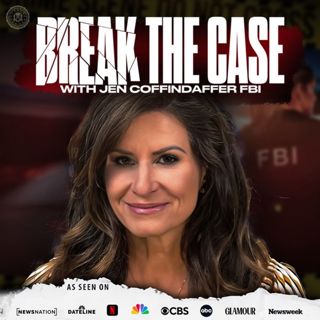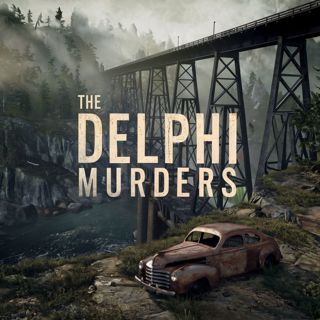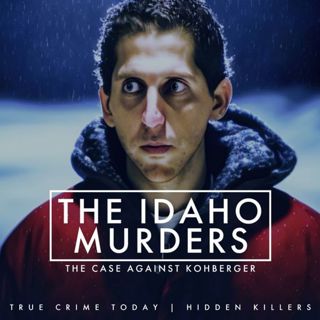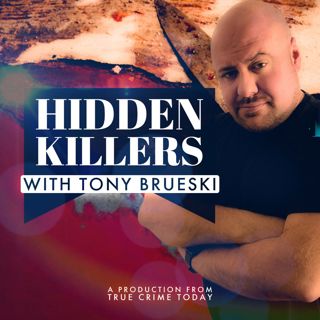
Break the Case: Stepmother Breaks Silence, “My Child May Face Charges” in Anna Kepner Cruise Death
The tragic death of 18-year-old Anna Kepner aboard the Carnival Horizon cruise ship has now escalated into a deeply complex FBI investigation, and newly uncovered court documents are shedding dramatic new light on the case. What began as a heartbreaking loss during a family vacation has quickly turned into a potential homicide inquiry involving a juvenile suspect, a custody battle, and allegations from Anna’s own relatives that she was murdered—not the victim of an accident or overdose. This breaking true crime story unfolds against the backdrop of a cruise ship returning to Miami, where FBI agents immediately boarded to secure the scene, interview passengers, and preserve evidence. According to the timeline, Anna was found unresponsive by a maid and pronounced dead just minutes later by the medical examiner. But the most shocking development comes from a recently filed court document in which Anna’s stepmother, Chantel Hudson, requested a delay in her custody hearing. Her reasoning: one of her minor children may face criminal charges connected to the ongoing federal investigation. This statement, coming directly from sworn records, supports what Anna’s grandmother and uncle have been saying since the beginning—that Anna did not die by accident. Their claims suggest she suffered a violent death aboard the ship, one involving disturbing details that point toward foul play. The FBI’s involvement, and the mention of a minor as a potential suspect, has triggered a slower process while federal authorities determine whether the juvenile should be charged as an adult or if the case will be handed to Miami-Dade prosecutors. As investigators work through witness statements, cruise ship logs, and forensic evidence, the case continues to gain national attention. Anna Kepner was a high-achieving Florida teen preparing for graduation and a future in the military. Her sudden death on what was meant to be a celebratory holiday trip has sent shockwaves through her community and ignited urgent questions about cruise ship safety, FBI procedures, and the fate of the juvenile at the center of this unfolding investigation. #truecrime #breakingnews #AnnaKepner #FBIinvestigation #CarnivalHorizon #justiceforAnna #crimescene #newsupdate #murderinvestigation #juvenilecrime Want to comment and watch this podcast as a video? Check out our YouTube Channel. https://www.youtube.com/@hiddenkillerspod Instagram https://www.instagram.com/hiddenkillerspod/ Facebook https://www.facebook.com/hiddenkillerspod/ Tik-Tok https://www.tiktok.com/@hiddenkillerspod X Twitter https://x.com/tonybpod Listen Ad-Free On Apple Podcasts Here: https://podcasts.apple.com/us/podcast/true-crime-today-premium-plus-ad-free-advance-episode/id1705422872
19 Nov 25min

The Delphi Timeline Is Falling Apart — What Investigators Said Under Oath
In this episode, I sit down with defense attorney and trial analyst Bob Motta to examine the most explosive development yet in the Delphi case: the collapse of the timeline investigators built around the murders of Abby and Libby. For years, the timeline was treated as settled. But when you read the depositions, the cracks spread fast. Bob and I break down how witness statements were reshaped, how the search-warrant affidavit reframed crucial descriptions, and how timelines were tightened or loosened depending on who was writing the report. This isn’t conjecture — it’s sworn testimony. Bob walks us through the most glaring issues: a witness who described a young man and an older car, yet was portrayed to the judge as having seen something “consistent” with Richard Allen; investigators who can’t agree on when the FBI was involved; conflicting testimony about the time of death; missing documentation around the bullet that ties Allen’s gun to the case; symbolic elements at the crime scene ignored or downplayed; and third-party suspects whose movements and statements were never thoroughly pursued. This interview digs into why these inconsistencies matter — not emotionally, but legally. How does a conviction stand when the foundation beneath it shifts every time you compare one deposition to another? How does an affidavit remain valid when key information was omitted or altered? And how does the public reconcile the clean version of the case with the messy, disjointed reality revealed behind closed doors? This isn’t about guilt or innocence — it’s about whether the system followed its own rules. And according to the depositions, the timeline wasn’t built on solid ground. It was built on selective memory, contradictory claims, and investigative shortcuts that now threaten the entire structure of the case. #DelphiCase #TrueCrimeNews #LegalBreakdown #RichardAllenCase #Depositions #CourtRecords #CrimeInvestigation #TimelineAnalysis #HiddenKillers #JusticeReview Want to comment and watch this podcast as a video? Check out our YouTube Channel. https://www.youtube.com/@hiddenkillerspod Instagram https://www.instagram.com/hiddenkillerspod/ Facebook https://www.facebook.com/hiddenkillerspod/ Tik-Tok https://www.tiktok.com/@hiddenkillerspod X Twitter https://x.com/tonybpod Listen Ad-Free On Apple Podcasts Here: https://podcasts.apple.com/us/podcast/true-crime-today-premium-plus-ad-free-advance-episode/id1705422872
19 Nov 35min

Delphi Investigators’ Behavior Makes No Sense — Ret FBI Robin Dreeke Breaks It Down
In today’s episode, former FBI Special Agent and Chief of the Counterintelligence Behavioral Analysis Program, Robin Dreeke, joins me for a breakdown unlike anything you’ve heard about the Delphi case. Forget the sanitized, press-conference version of this investigation. Robin and I go deep into the human psychology behind the breakdown — the way investigators acted, reacted, remembered, forgot, contradicted each other, shut out certain leads, and emotionally locked onto others. The depositions don’t just reveal evidence issues. They reveal behavioral issues. And Robin reads those better than anyone. Why did two lead investigators swear under oath to completely opposite stories about the FBI’s involvement? How does a team forget or “not recall” something as significant as an early BAU ritual-indicator assessment? Why would symbolic elements at the crime scene be brushed aside? Why would red-flag behavior from potential suspects be minimized? Why were sticks left for days, evidence untested, witness statements reframed, and major investigative steps glossed over? Robin walks us through the behavioral patterns that show up when an investigative system is overwhelmed — from narrative lock, to tunnel vision, to fear-based decision making, to the emotional need to force coherence onto an incoherent case. We discuss cognitive contamination, leadership collapse, internal factioning, memory distortion, and the psychological pressure that quietly reshapes how investigators interpret facts. This episode isn’t about guilt or innocence. It’s about how the people behind the Delphi investigation functioned — and dysfunctioned. And why that matters. If you want to understand why this investigation feels so fractured, and what the depositions really reveal about the team that built the case, Robin’s analysis is absolutely essential. #Delphi #DelphiMurders #BehavioralAnalysis #RobinDreeke #TrueCrime #InvestigationBreakdown #Psychology #JusticeSystem #HiddenKillers #RichardAllen Want to comment and watch this podcast as a video? Check out our YouTube Channel. https://www.youtube.com/@hiddenkillerspod Instagram https://www.instagram.com/hiddenkillerspod/ Facebook https://www.facebook.com/hiddenkillerspod/ Tik-Tok https://www.tiktok.com/@hiddenkillerspod X Twitter https://x.com/tonybpod Listen Ad-Free On Apple Podcasts Here: https://podcasts.apple.com/us/podcast/true-crime-today-premium-plus-ad-free-advance-episode/id1705422872
19 Nov 22min

Kohberger Ordered to Pay Families With The Blood Money He’s Lied About Making
Bryan Kohberger has just been ordered to pay for another part of the aftermath he created — this time, roughly $3,000 for two victims’ urns, on top of the more than $30,000 restitution outlined in his agreement. On the surface, it feels like a moment of overdue accountability in a case where nothing has moved fast enough, clean enough, or confidently enough. But as always in the Kohberger saga… the fine print tells a very different story. In this episode of Hidden Killers, Tony Brueski dives into the judge’s ruling — not just what it means for restitution, but what it quietly unlocks. Because the judge didn’t just say “pay up.” He said Kohberger can get a job in prison or ask for donations to raise the money. Let that sink in. When the court says “donations,” that opens the door to an entire ecosystem of online supporters, fringe communities, contrarians, and high-profile-case obsessives who will absolutely try to send him money. And legally? They can. As long as it goes toward restitution. But here’s the real problem: What happens once the restitution is paid off? That’s where things get uncomfortable. Because any money that comes in after his debt is satisfied becomes fair game under prison regulations. Commissary. Comfort. Influence. Power. Even long-term financial positioning. And then there’s the big, ugly question most people don’t want to touch: Can he someday legally profit from his story? “Son of Sam” laws were gutted years ago. The restrictions people assume exist… often don’t. Third-party deals, “creative packaging,” and legally gray revenue channels have helped other high-profile offenders monetize their notoriety. And with this ruling, Kohberger now has the first ingredient he needs — a pathway for money to flow toward him legally. Tony breaks down what’s fair, what’s dangerous, and what the system just opened the door to. Accountability is one thing. What comes after it? That’s the part nobody’s ready for. #HiddenKillers #BryanKohberger #IdahoCase #TrueCrimeNews #JusticeSystem #CrimeAnalysis #LegalBreakdown #TonyBrueski #CrimeUpdates #CourtRulings Want to comment and watch this podcast as a video? Check out our YouTube Channel. https://www.youtube.com/@hiddenkillerspod Instagram https://www.instagram.com/hiddenkillerspod/ Facebook https://www.facebook.com/hiddenkillerspod/ Tik-Tok https://www.tiktok.com/@hiddenkillerspod X Twitter https://x.com/tonybpod Listen Ad-Free On Apple Podcasts Here: https://podcasts.apple.com/us/podcast/true-crime-today-premium-plus-ad-free-advance-episode/id1705422872
19 Nov 13min

Delphi Investigators Implode Under Oath — The Depositions Change Everything
In our latest interview, defense attorney Bob Motta joins me to dissect the one thing the public never truly got to see in the Delphi murders case: the investigators themselves, speaking under oath. And what those depositions reveal isn’t a unified, focused, evidence-driven investigative team — it’s a fractured, inconsistent, internally conflicted system struggling under the weight of its own decisions. For years, the Delphi narrative has been kept clean and simple on the surface. But beneath that exterior is a record full of contradictions: investigators who cannot agree on whether the FBI was removed from the case… conflicting recollections about the Behavioral Analysis Unit’s early assessment… witness statements reshaped in the search-warrant affidavit… third-party suspects dismissed despite disturbing statements and behavior… symbolic evidence at the crime scene left unexplored… and forensic gaps that defy basic homicide protocol. Bob walks us through all of it — the timeline manipulation, the altered witness descriptions, the failure to pursue leads, the missing documentation around the bullet, the sticks left in the woods for days, and the Odinism material that sat in the prosecutor’s office for months before being disclosed. These are not minor mistakes. These are systemic failures with massive implications for Richard Allen’s appeal. If you're looking for the polished, sanitized version of this case, this isn’t it. This is the raw underside — the part the public didn’t see, the part juries never heard, and the part that may very well determine whether this conviction withstands appellate scrutiny. When investigators contradict each other, forget key events, minimize crucial evidence, and reshape witness statements to fit a narrative, it’s not just bad optics — it’s a crisis of investigative integrity. And today, Bob and I break that crisis wide open. #Delphi #DelphiMurders #RichardAllen #TrueCrime #Depositions #LegalAnalysis #JusticeSystem #Investigations #CourtFilings #HiddenKillers Want to comment and watch this podcast as a video? Check out our YouTube Channel. https://www.youtube.com/@hiddenkillerspod Instagram https://www.instagram.com/hiddenkillerspod/ Facebook https://www.facebook.com/hiddenkillerspod/ Tik-Tok https://www.tiktok.com/@hiddenkillerspod X Twitter https://x.com/tonybpod Listen Ad-Free On Apple Podcasts Here: https://podcasts.apple.com/us/podcast/true-crime-today-premium-plus-ad-free-advance-episode/id1705422872
19 Nov 24min

The Delphi Investigation Was a Train Wreck — Here’s the Evidence EXPOSED!
In the Delphi murders case, the public has only ever been shown one version of events — a clean timeline, a single suspect, and an investigation that supposedly marched in a straight line toward justice. But once you start digging into the actual depositions of the investigators who built the case against Richard Allen, that clean version evaporates fast. What’s underneath is something entirely different: a fractured investigation full of contradictions, missing evidence, conflicting statements, and decisions that make you wonder how much of the original truth ever had a chance to survive. Today, we’re taking you deep inside the sworn testimony and filings that the public was never meant to examine this closely. What did investigators really say under oath? Why do key officials contradict each other about major decisions — including whether the FBI was pushed out of the case? Why were crucial witness statements reshaped before being used in a search-warrant affidavit? Why were important leads labeled “no further action” despite red-flag behavior? Why were symbolic elements at the crime scene barely documented? And how did evidence end up in court without the chain-of-custody clarity you’d expect in a double-homicide investigation? This isn’t about guilt or innocence. It’s about process — whether the investigation that led to Richard Allen’s conviction was built on solid ground or on decisions that shifted depending on who was asking the questions. And when you open the actual language inside these depositions, you start to see exactly why the integrity of this case is being challenged at the appellate level. Was the investigation thorough? Was it objective? Was it consistent? Or did pressure, confusion, and internal conflict bend the foundation long before the trial ever began? Today, we go through it all — in detail, in context, and with the clarity this case deserves. If you care about the truth in Delphi, you’re going to want to hear this. #Delphi #DelphiMurders #AbbyAndLibby #TrueCrime #RichardAllenCase #LegalAnalysis #CrimeInvestigation #Depositions #JusticeSystem #HiddenKillers Want to comment and watch this podcast as a video? Check out our YouTube Channel. https://www.youtube.com/@hiddenkillerspod Instagram https://www.instagram.com/hiddenkillerspod/ Facebook https://www.facebook.com/hiddenkillerspod/ Tik-Tok https://www.tiktok.com/@hiddenkillerspod X Twitter https://x.com/tonybpod Listen Ad-Free On Apple Podcasts Here: https://podcasts.apple.com/us/podcast/true-crime-today-premium-plus-ad-free-advance-episode/id1705422872
19 Nov 21min

Delphi’s Ignored Leads — Why Investigators Dropped the Red Flags
Today, defense attorney Bob Motta and I take a hard look at one of the most troubling aspects of the Delphi murder investigation: the leads that were dismissed, minimized, or never meaningfully followed. The depositions show something the public has never had a clear window into — investigators explaining why certain suspects weren’t pursued, why certain statements didn’t matter, why symbolic elements of the crime scene were ignored, and why potentially exculpatory information was either downplayed or outright forgotten. In this conversation, Bob breaks down how two individuals tied to the Odinism angle — individuals whose behavior should have triggered deeper investigation — were inexplicably filed as “no further action.” One made a disturbing comment about whether his DNA would be found on the girls. The other posted imagery eerily similar to the crime scene and owned a .40-caliber handgun that was never seized or tested. These aren’t fringe details. These are red flags. Massive ones. Yet the investigative record treats them as footnotes. Bob and I go through why leads like these get dropped, how narrative lock affects decision-making, and what happens when the pressure to find “the right suspect” overshadows the obligation to explore every suspect. We cover the symbolic patterns on the girls’ bodies, the missing tree-origin analysis on the sticks, the late disclosure of the Odinism file, and the dissonance between what investigators told the public versus what they swore to in depositions. This isn’t speculation. It’s not theory. It’s the investigators themselves, under oath, explaining why critical evidence was set aside — and whether that decision is now going to haunt the state on appeal. If you want to understand the investigative blind spots in the Delphi case, this is the episode. #Delphi #RichardAllen #TrueCrimeAnalysis #IgnoredEvidence #LegalInsights #DelphiDepositions #CrimeSceneReview #JusticeSystem #HiddenKillers #InvestigativeFailures Want to comment and watch this podcast as a video? Check out our YouTube Channel. https://www.youtube.com/@hiddenkillerspod Instagram https://www.instagram.com/hiddenkillerspod/ Facebook https://www.facebook.com/hiddenkillerspod/ Tik-Tok https://www.tiktok.com/@hiddenkillerspod X Twitter https://x.com/tonybpod Listen Ad-Free On Apple Podcasts Here: https://podcasts.apple.com/us/podcast/true-crime-today-premium-plus-ad-free-advance-episode/id1705422872
19 Nov 59min

Reckless or Murder? The Fraser Bohm Case Forces a Hard Question
Four young women. One devastating crash. And a courtroom now wrestling with a question nobody wants to ask out loud: when does reckless behavior cross the line into murder? In today’s episode of Hidden Killers with Tony Brueski, we dive deep — not into outrage, not into assumptions, but into the uncomfortable space where law and emotion collide. The case of Fraser Michael Bohm, the 22-year-old accused of driving over 100 mph on Malibu’s Pacific Coast Highway before striking parked cars and killing four Pepperdine students, is now shaping up to be one of the most complex legal and moral debates in recent memory. Prosecutors say Bohm knew the danger. He knew the road. He’d lost friends to high-speed crashes before. And yet, according to investigators, he pushed his BMW past triple-digit speeds on a stretch known as “Dead Man’s Curve.” They argue this wasn’t a random tragedy — it was implied malice, the level of awareness that elevates a fatal crash into murder under California law. But the defense sees something different. They call this a catastrophic mistake — not malice. They point to his lack of impairment, his clean record, the possibility of panic or misjudgment, and the long legal tradition that separates negligence from murder. They argue that broadening the definition of malice risks criminalizing tragedy rather than intention. So who’s right? Does the foreseeability of danger define the crime? Or should the law resist bending under the weight of public grief? This episode challenges assumptions on both sides. It asks you to sit with the discomfort and think — truly think — about what justice means in a case where intent, recklessness, and tragedy all overlap. If you’ve already picked a side in the Bohm case… this might make you reconsider. 🎙️ Subscribe for in-depth, emotionally grounded true-crime analysis that’s never shallow, never sensational — just honest. #FraserBohm #HiddenKillers #TonyBrueski #PepperdineCrash #VehicularMurder #MalibuCrash #CourtTV #TrueCrimeCommentary #CriminalJustice #RecklessDrivingCase Want to comment and watch this podcast as a video? Check out our YouTube Channel. https://www.youtube.com/@hiddenkillerspod Instagram https://www.instagram.com/hiddenkillerspod/ Facebook https://www.facebook.com/hiddenkillerspod/ Tik-Tok https://www.tiktok.com/@hiddenkillerspod X Twitter https://x.com/tonybpod Listen Ad-Free On Apple Podcasts Here: https://podcasts.apple.com/us/podcast/true-crime-today-premium-plus-ad-free-advance-episode/id1705422872
19 Nov 21min





















